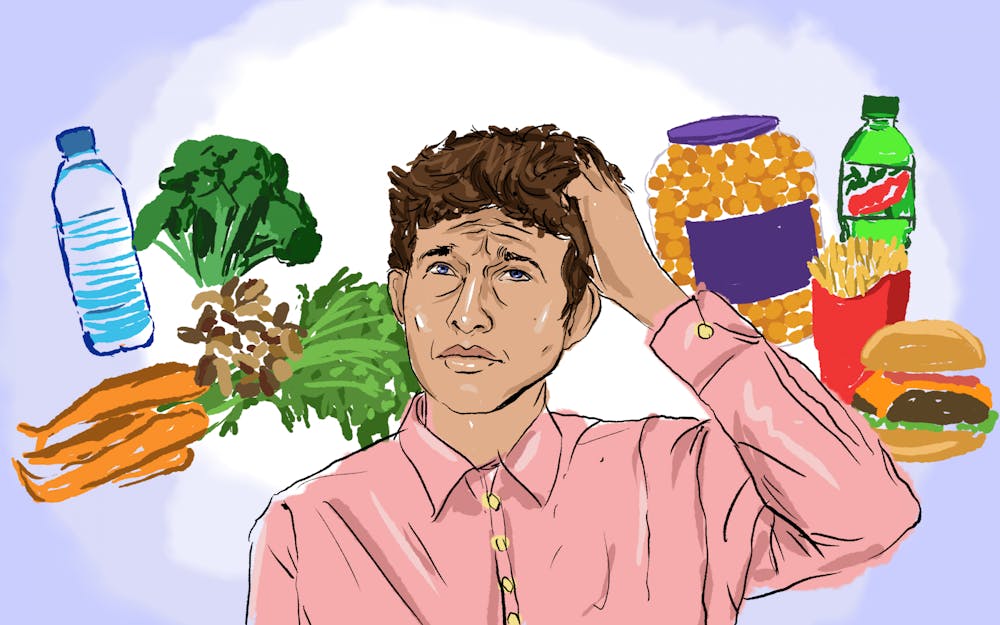A video of a woman criticizing people’s choices to purchase processed foods recently garnered a lot of attention on TikTok. While the original video is currently unavailable, multiple users have stitched the video to add their own commentary. In the video, the creator criticizes a woman she saw at the grocery store who was buying “junk foods” — white bread, chips and instant noodles.
I find this video and others like it to be incredibly misguided in their judgment. People are driven to buy processed foods because they often require less time to make, are typically cheaper and are generally widely available, especially in food deserts — areas with limited access to affordable, nutritious foods.
According to the U.S. Department of Agriculture, roughly 19 million Americans live in food deserts and nearly 34 million live in food-insecure households.
I understand that the U.S. and many other countries have problems with ultra-processed ingredients and meals. High consumption of such foods are associated with various health problems, from heart disease to diabetes. But it would be naive to blame this on individual consumers for being lazy or uninformed and tell them to simply buy better food.
[Related: OPINION: Pumpkin pie is political: the politics of food]
Capitalism prioritizes profits over people, and that manifests in overworking Americans and incentivizing them to turn to the vast offerings of highly processed foods available that save time and energy. Before we pass judgment to others for eating a conventional American diet, we should focus on acknowledging the systems in place that incentivize the production and consumption of such foods.
Food companies purposely add high levels of sugar, fat and other components to highly processed foods to make them as addictive as possible. On top of that, companies aggressively market these foods, and they are often cheap and widely available in almost any store that sells food.
Many wellness influencers create videos promoting the consumption of various foods and diets that often contain hard to find or expensive ingredients.
One video by @wokehealth on Tiktok shows a full day of meals that include ingredients such as raw milk, raw kefir, raw cheese and grass-fed beef — all foods that are either difficult to find or expensive at grocery stores.
Grass-fed beef, one of the foods often promoted by creators for being nutritious, costs between 2 to 3 dollars more per pound than conventional grocery store beef. A price discrepancy that significant is simply not something that many American families can ignore.
Another creator shows her day of eating, noting that she eats “real food” as opposed to “processed garbage.” The video features things like wild-caught salmon and bison liver supplements.
The exact supplements she took cost $53 for a pack of 180 capsules — which is intended to last 30 days. Wild caught salmon, a food often promoted for being superior to farm-raised salmon by wellness influencers, costs roughly three to four times as much per pound.
[Related: COLUMN: On the clock: What’s up with wellness?]
Wellness creators often carelessly use words like “toxic” and “chemicals” in a way that is intended to generate fear surrounding various foods. The use of these words is often mischaracterizing — for instance, water is a chemical.
Further, words like “processed” can simply mean a food is frozen, peeled, or has other relatively simple modifications. Processing does not automatically render something not nutritious or healthy. Labels used to describe “good” foods and products, such as “natural,” hold virtually no legitimacy in indicating the nutrition or safety of a product in the marketing world.
A diet that contains various food groups and nutrients in moderation is almost always a safe and beneficial choice for the average person. Generating fear around food and shaming the shopping choices of others does nothing to address the root of the problem. Too many Americans are struggling to even put enough food on the table each day before they can start worrying about eating only grass-fed beef or purchasing liver supplements that cost as much as a tank of gasoline.
Leila Faraday (she/her) is a freshman studying policy analysis.




